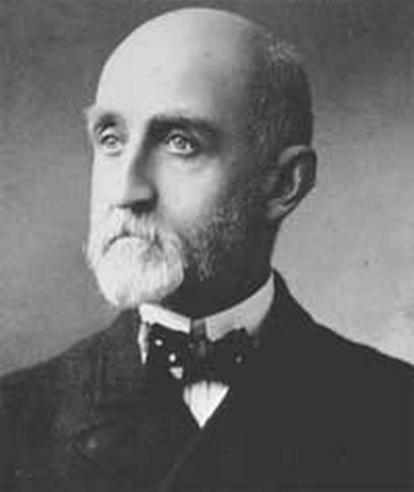
He was constantly seasick, and the ships he commanded had a tendency to collide with stationary objects, such as reefs, and moving ones, such as other ships. He never saw action, only the tedium of blockade duty during the Civil War. Superiors considered him something of a nuisance. The exacting officer found regular seamen dirty, unkempt and unlettered they found him a cold, unfeeling martinet. While man and wife got on famously, it was a different story between Mahan and his fellow officers and men aboard ship.
#ALFRED THAYER MAHAN ARGUED THAT PROFESSIONAL#
A tall, heavy-set, intelligent and determined woman 11 years his junior, Ellen proved nearly as thrifty and punctilious as her husband, typing nearly all of his manuscripts herself rather than spending anything on a professional secretary. Relieved to marry the former Ellen Lyle Evans-against her father’s express wishes-the 31-year-old commander turned over to her the management of the household and their eventual three children, along with his monthly paycheck.

Gough.īright, ambitious and quietly vain, Mahan was an austere 6-footer who was socially awkward and had trouble showing affection. There, he finished second in his class (1859) but “was unpopular and isolated at the naval academy because of his rigid belief in discipline,” according to historian Barry M. Young Alfred started his academic career at Columbia University, then transferred to Annapolis against his parents’ wishes. Mahan was born at West Point, N.Y., the son of the head of the engineering department at the U.S. Indeed, his whole career might be seen as an act of Freudian revenge. President Woodrow Wilson more or less concurred, blaming the war in part on the sort of navalism Mahan espoused. He was, according to one historian or another, “the prophet of sea power in the late 19th century,” “that apostle of navalism and imperialism,” “a naval Mohammed.” The diplomatic historian Sir Charles Webster called him one of the causes of World War I. His bald, goateed head stares gravely- almost menacingly-out at us from a thousand history texts. Mahan became a worldwide celebrity almost overnight- and has remained one. Here we focus on Mahan.Īlfred Thayer Mahan’s rise from obscure sea captain to international acclaim in the space of four years was improbable to say the least historian Kyle Whitney termed the naval theoretician’s leap the equivalent of “a cheerleader becoming president.” Military History will explore Upton’s philosophy in a future issue. But just as significant as their actual ideas was the fact that they were military men, and that they would make their mark not only in the United States but also on the world’s stage. What they proposed would influence American military strategy and tactics for decades to follow. Stunningly ambitious, industrious, prolific, disciplined, patriotic, observant and innovative, they were also jealous, intolerant, tone-deaf, neurasthenic and religious to the point of priggishness. Both were endowed with all the virtues and the limitations of their age.

Much of the debate over just how the United States would grow up and take its proper place in the greater world revolved around a pair of extraordinary American thinkers: Colonel Emory Upton, from the Army, and Rear Admiral Alfred Thayer Mahan, from the Navy. It could no longer depend upon its usual brilliant amateurism in all matters military, nor could it rely upon the kindness of strangers to protect American commerce and interests around the world. A United States that spanned a continent and boasted the world’s largest economy by the 1880s could no longer live in splendid isolation. At the same time, as America grew, so did its interactions with the rest of the world. Right up until World War II we also remained suspicious that a large, permanent and professional military might serve primarily as the enforcing arm of such a government. This has been especially true for Americans: As a people, we have long been suspicious of big government, particularly the federal government, even when we’ve accepted it.

#ALFRED THAYER MAHAN ARGUED THAT FREE#
Its very nature-an absolute command structure, in which decisions are not put to a vote but ordered the settling of all issues ultimately by force of arms the limitation of individual rights each soldier must accept- cuts against the grain of a free society. Dependent upon the popular will, they breed loyalty and devotion.Īnd yet the idea of a large standing military raises the hackles of a democracy. They encourage innovation, self-reliance and free thought, while also allowing some leeway for error and defeat. In 1890 Alfred Thayer Mahan published a book that transformed naval theory-and unleashed the world’s great fleets.ĭemocracies are good at war for many of the same reasons they are good at capitalism and at the enhancement of the human spirit.


 0 kommentar(er)
0 kommentar(er)
